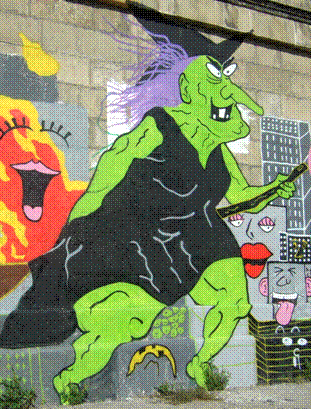(Letters from Abroad is back with the original photo, the Witch of the Danube Canal.)
Science fiction explores science’s relationship with humanity.
A book may follow a certain technology from its invention through its inclusion into society, typically with unexpected results. A special trait of an alien civilization may affect the way that civilization uses tech. Books like His Master’s Voice by Lem stay with the scientists themselves, their disputes, the limit of the scientific method. Rivalries between scientists, the misuse of technology and science (see: Atom Bomb), these are all the obsessions of certain science fiction.
They are also the obsessions of another group of people, those involved in Science and Technology Studies (STS), and, more broadly, the sociology and history of science. These people are either scientists who focus on the human aspect of their fields, or sociologists and historians with a strong interest in scientific issues.
They explore, in the real world through careful study, what science fiction authors explore through fiction/art. I think many of their themes are the same, and I imagine there are quite a few ideas for science fiction stories to be culled from their research.
Next time on Letters from Abroad I will bring you a two-part interview with Kelly Joyce, currently a program director at the National Science Foundation, who is normally an associate professor of sociology who studies technology, medicine, and science at The College of William & Mary. (Added: Part 1 of the interview, on MRI, diagnostic dogs, House, etc is up here.)
Meanwhile, I give you two articles as random samples of the myriad things STS involves. These are long articles, probably it’s easier to print them out.
First, a biologist in the Dept of Molecular Biology, Cell Biology, and Biochemistry at Brown U.—Anne Fausto-Sterling—writes about moving past arguments of nature vs. nurture, using the case of bone density and bone fractures as an example for her argument. It’s dense at start; you may want to skip after the first couple of pages to page 1499.
Next, E.J. Woodhouse at Rensselaer Polytechnic Inst. compares nanoscience and technology R&D to green chemistry R&D.
Am I the only one who reads this kind of stuff as a layperson?
Keith McGowan is the debut author of The Witch’s Guide to Cooking with Children, which was named an “inspired recommendation for children” by independent bookstores nationwide. He is published by Christy Ottaviano Books, Henry Holt & Company.










